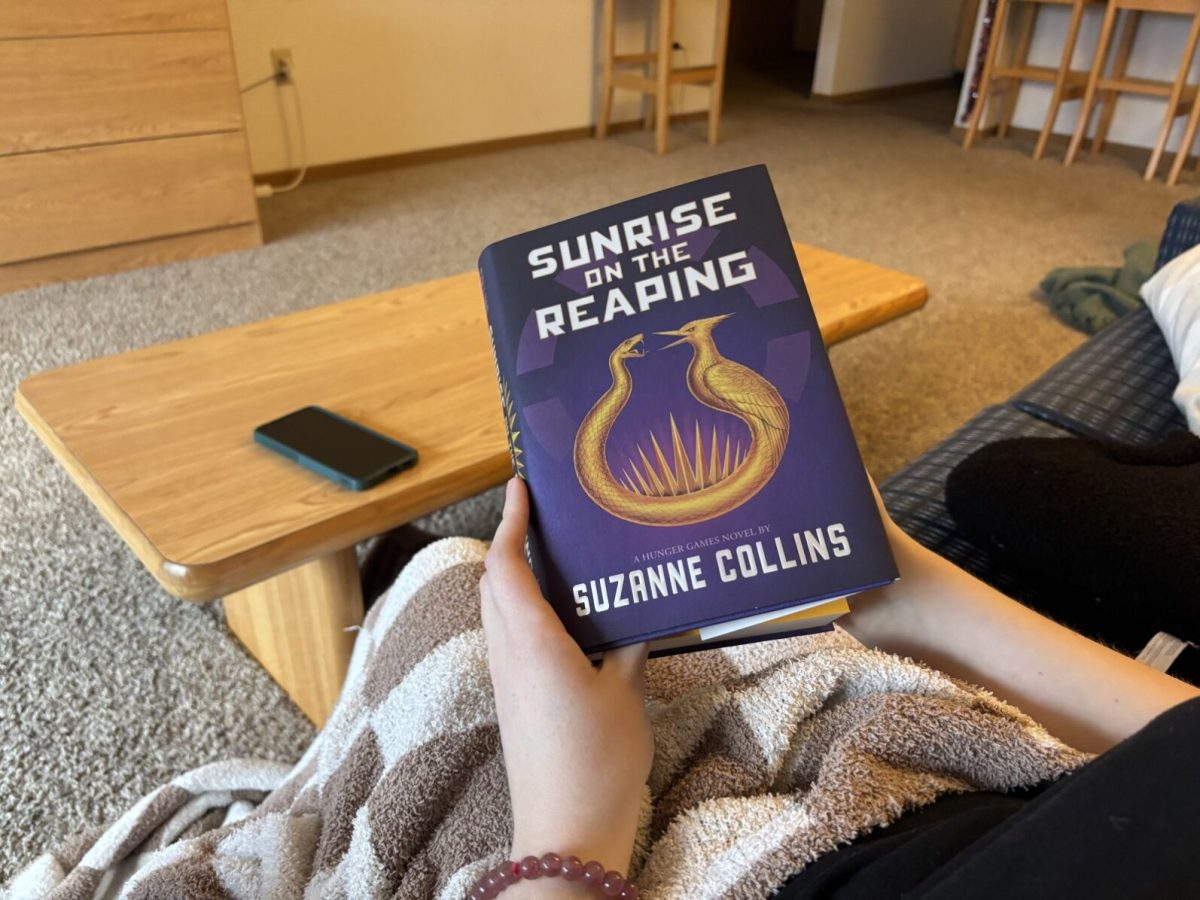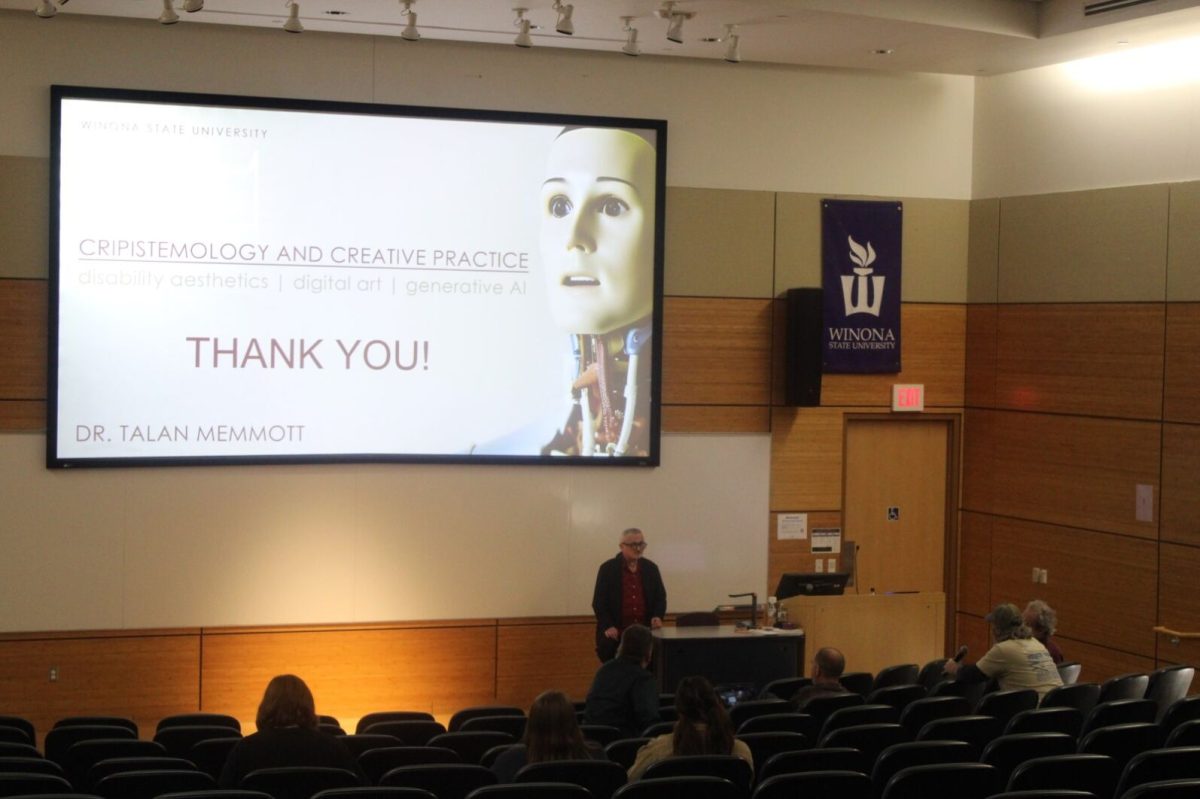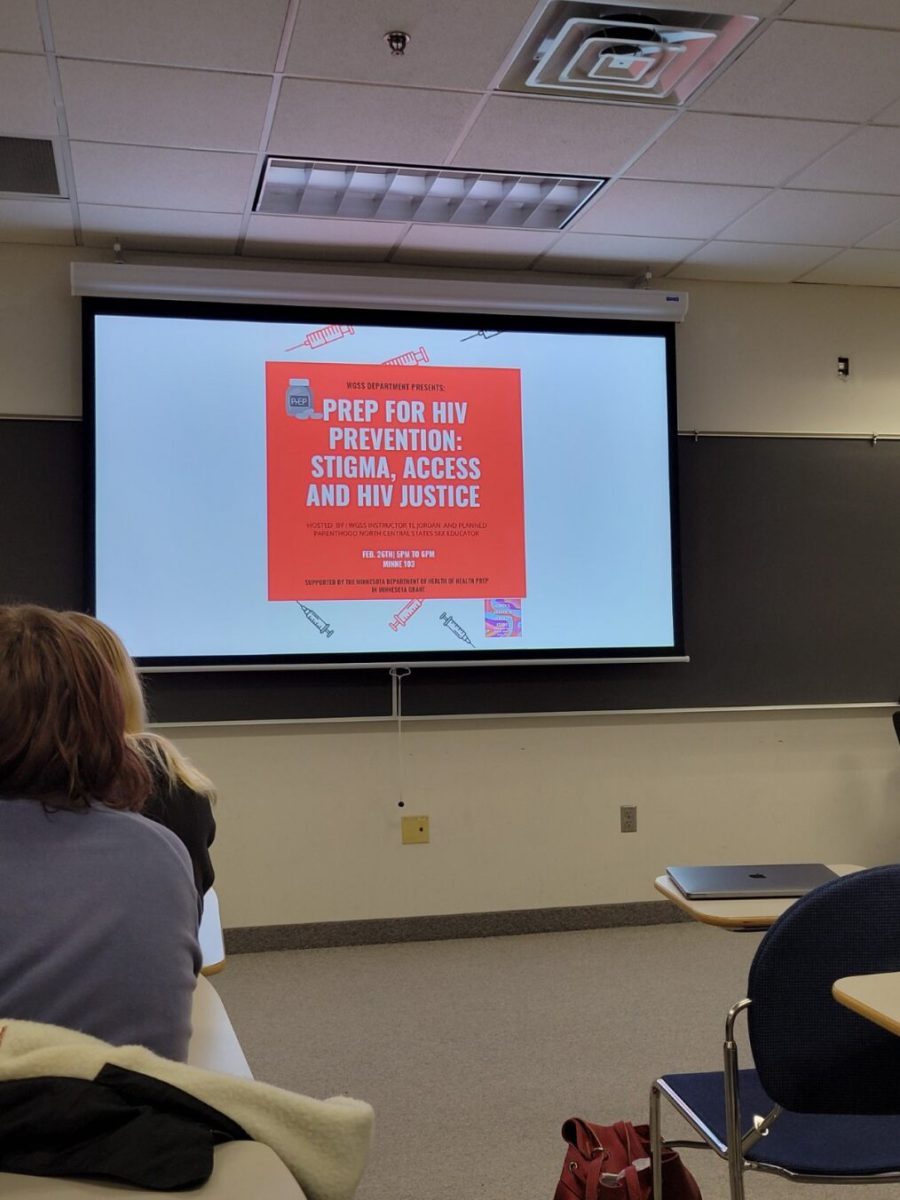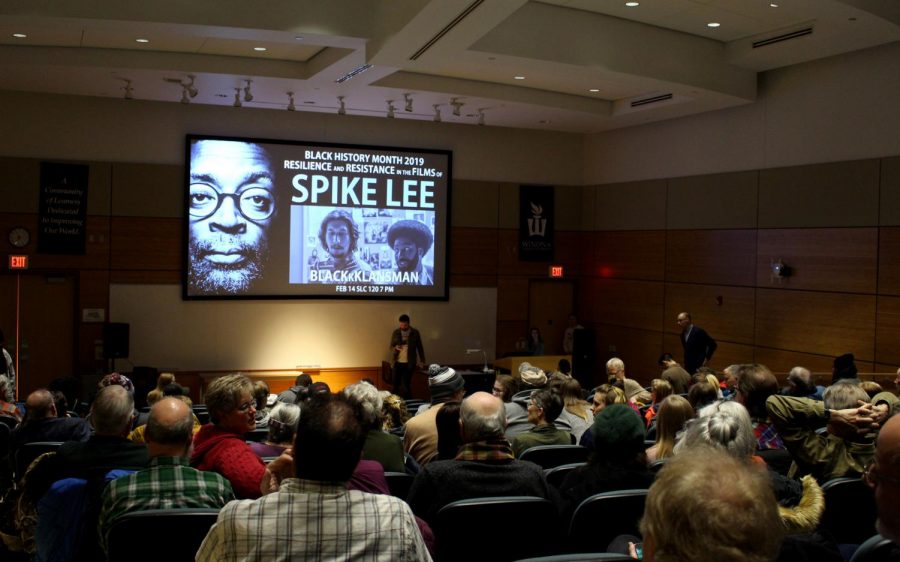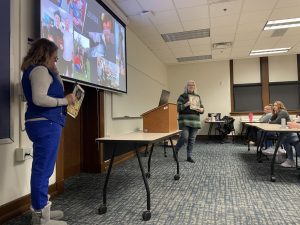Black History represented in film series
Winona State students and community members await the beginning of “BlacKkKlansman,” directed by Spike Lee. The movie showing is part of the Resilience series in honor of Black History Month.
February 20, 2019
In honor of Black History Month, Winona State University’s film department teamed up with the inclusion and diversity office to display the works of Spike Lee, one of few African-American film writers and directors.
J. Paul Johnson, a film studies professor, helped lead the film series titled, “Resilience & Resistance: The Films of Spike Lee.”
Johnson reported that his students of “Film 440 – Directors/Stars: Spike Lee” are doing the majority of the presenting, preparing and scheduling of the films while the office of inclusion and diversity has been helping to host, promote and financially support the event.
Noah Mruz, a junior film studies major and Film 440 student, presented the first film of the series.
Mruz explained the importance of presenting this film.
“BlacKkKlansman showcases the struggle of a young African-American in Colorado as he fights to be treated equally in his police precinct as their first black African-American office,” Mruz said. “The film showcases different views of African-Americans and the police, not only by Klansmen, but also students in the area. The film also draws many parallels to the Charlottesville ‘Unite the Right’ rally, as well as the subsequent protests and violence that followed.”
Mruz said the room was nearly packed during his presentation. He said he was excited to see how many students came to the event and participated in discussing it as small groups after the film
“Since it is a longer movie, we decided to do some discussion on the film beforehand and then let the students discuss amongst themselves once the film ended,” Mruz said. “I was so excited and surprised to see how many students came and wanted to talk about the film.”
Johnson said most Spike Lee films are not widely seen or known about and the Winona State film department wanted to do something about it for the Winona community.
“Film is a public medium it is meant to be widely seen, widely shared, widely discussed,” Johnson said. “Our film studies program is passionate about film, they relish opportunities to share what they appreciate and what they love, not only with each other but also with other students, their peers and any other students who will listen.”
By presenting these films, the Winona State film department and inclusion and diversity office is introducing students to new films they may never see otherwise.
“One of the things we’re doing is helping to make a theatrical experience for viewing this film to the Winona State and Winona communities, just like we did with the resilience film series earlier this year,” Johnson said. “These are opportunities for us to bring some really great films to campus that people might not have heard of or have had the opportunity to see.”
Jonathan Locust, associate vice president of the inclusion and diversity office, explained the importance of presenting Spike Lee films during Black History Month.
“Spike Lee is one of the most well-known and respected film directors. However, the film industry lacks well-known black producers,” Locust said as opposed to what Johnson said about the director. “Students should watch these films to better understand the stories and experiences of diverse groups.”
Working directly with the films, Mruz explained why Lee was chosen to be the focus of the class and the film series.
“Themes of resilience and resistance are seen throughout of all of Spike Lee’s works,” Mruz said. “Lee is a huge proponent of resisting the racist powers at bay and remaining resilient throughout all discrimination, ultimately to fight for equality that is justly deserved by all of God’s children.”
Johnson said that while this month’s film series is a whole new production on its own, it still connects to the university theme of resilience and the film series presented earlier in the year. Johnson added that Lee’s films touch on many major points of resistance and resilience.
Johnson quoted Public Enemy saying, “Lee’s films are about fighting the powers that be.”
“It takes a great amount of resilience to do that and I think that is something everyone will see in all the movies being played,” Johnson said. “Just how resilient these character needs to be in their circumstances.”
Mruz voiced his opinion on the importance of film and how it can express so many things.
“Celebrating through film is something so powerful and I feel lucky to have been a part of it,” Mruz said. “I never thought I would be able to express the importance and significance of something through films, but our class is doing it and it feels great.”
While the films are important and a representation of Black History Month, Locust talked about the importance of Black History Month aside from the films.
“Black History Month, as well as the other culturally celebratory months, means a lot to inclusion and diversity,” Locust said. “We enjoy these months because it gives us an opportunity to highlight the contributions and share the stories of the undeserved and underrepresented populations.”























